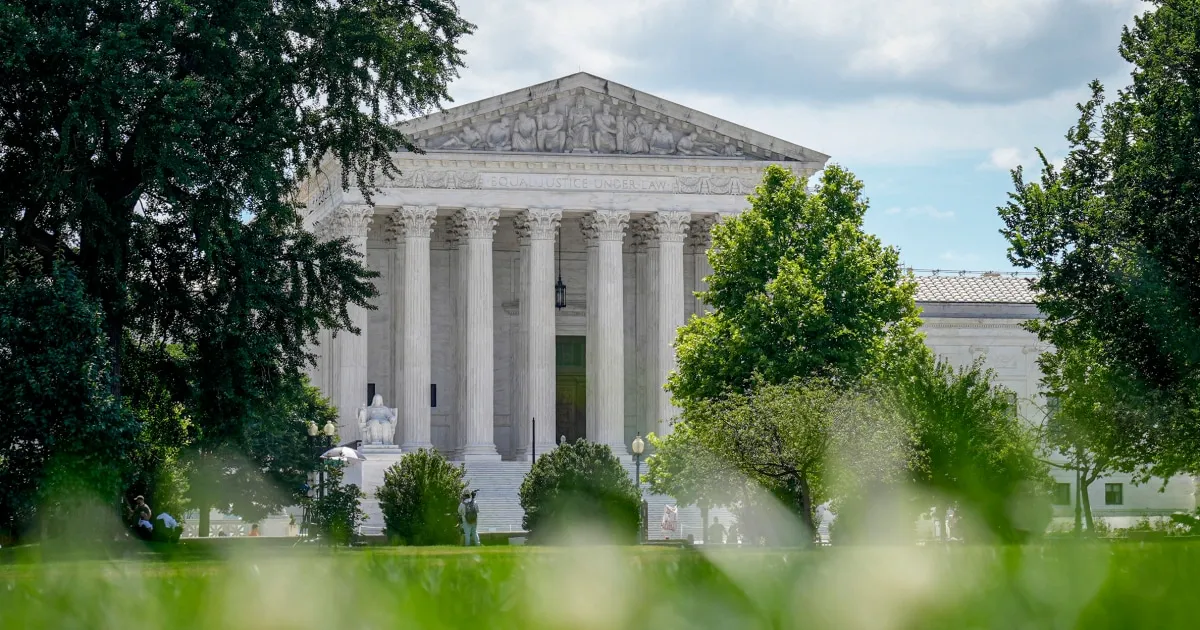
On Monday, the Supreme Court began deliberating a significant challenge to a panel established under the Affordable Care Act (ACA) that recommends essential preventive care services that must be provided by insurers at no cost to patients. This case emerged from a lawsuit initiated by Christian employers Braidwood Management and Kelley Orthodontics, alongside several individuals, who argue that their religious beliefs are compromised by the Preventive Services Task Force approving free coverage for the HIV prevention medication known as PrEP.
The plaintiffs contend that their religious rights are infringed upon because the task force’s recommendations make them complicit in activities they oppose, including “homosexual behavior, drug use, and sexual activity outside of marriage between one man and one woman,” as detailed in court documents. However, the crux of the Supreme Court's review does not center on these religious concerns, which are rooted in the First Amendment of the Constitution. Instead, the central question is whether the structure of the Preventive Services Task Force is unconstitutional.
The challenge asserts that the task force violates the Constitution's Appointments Clause because its members are not nominated by the president or confirmed by the Senate. A ruling in favor of Braidwood Management could have far-reaching consequences, potentially invalidating previous decisions made by the task force and freeing insurers from the obligation to cover the recommended preventive services.
The task force, composed of 16 outside experts, operates as an independent body appointed by the federal official leading the Agency for Healthcare Research and Quality. The ongoing dispute is part of a broader series of legal challenges targeting the ACA, which was President Barack Obama's hallmark legislative achievement. The ACA has faced relentless opposition from Republicans, who have consistently attempted to repeal it through the courts.
Interestingly, in this case, the Trump administration is defending the ACA provision after taking over from the Biden administration. Government lawyers argue that the task force members are lawfully appointed, as they operate under the supervision of the Secretary of Health and Human Services, currently Robert F. Kennedy Jr.. This oversight addresses concerns regarding accountability to the executive branch. The government maintains that the task force does not wield the same authority as “principal officers,” which would necessitate Senate confirmation.
If the Supreme Court finds that the task force is unconstitutionally structured, it may still resolve the issue by determining that the task force is not independent and that its actions require approval from the HHS secretary. This approach mirrors a decision made in a 2021 case involving in-house judges at the U.S. Patent and Trademark Office, potentially leading to increased control over the task force by Kennedy and other officials.
The challengers argue that the court has no grounds to remedy the constitutional concerns as the government proposes. Their lawyer has characterized the government’s suggestion as “unlawful for many reasons,” indicating that it would grant the HHS secretary powers that exceed what is outlined in the statute. Following the lawsuit's initiation in 2020, a federal judge in Texas ruled that the structure of the task force was unconstitutional, invalidating its decisions nationwide. However, the 5th U.S. Circuit Court of Appeals later narrowed that ruling.
As the Supreme Court weighs this pivotal case, the implications for the future of the Affordable Care Act and the preventive care services it mandates hang in the balance, reflecting the ongoing national debate over healthcare access and religious liberties.